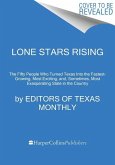A century ago, Seattle was held hostage by its own waterfront. Competing railroad companies built a chaotic sprawl of rail lines, docks, and warehouses along the shoreline of Elliott Bay, creating conditions so bad that visionary civic planner Virgil Bogue called the harbor side "a blot on the city and a menace to the lives of its people." After years of bickering and lawsuits, the 1911 Port District Act was passed, making the Port of Seattle the first public port formed under legislation. The new public seaport briefly became the second busiest in the country during World War I. In the 1940s the Port of Seattle agreed to provide civilian air services by building Seattle-Tacoma International Airport, which today serves millions of passengers per year. This new edition covers the innovative Northwest Seaport Alliance, created in 2015 with the Port of Tacoma to jointly operate commercial shipping out of two harbors; the rise of cruise ship travel and the accompanying economic boom; Sea-Tac's responses to 9/11 and the Covid-19 pandemic; and the airport's growth and new International Arrivals Facility. Revised and updated, this new edition brings the story of the Port of Seattle up to the present and marks the seventy-fifth anniversary of Seattle's bustling international airport.
Hinweis: Dieser Artikel kann nur an eine deutsche Lieferadresse ausgeliefert werden.
Hinweis: Dieser Artikel kann nur an eine deutsche Lieferadresse ausgeliefert werden.








